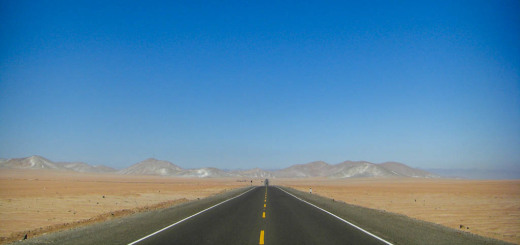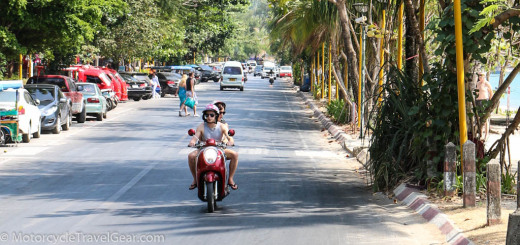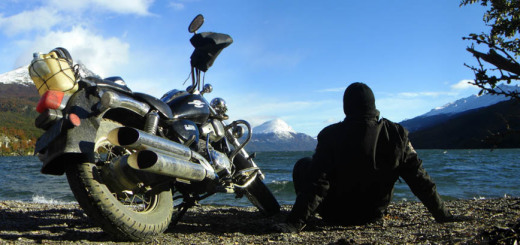8 Things I Learned Riding a Motorcycle in South America
Above all things, true travel is a learning experience. The amazing time I had while I was on the road was enhanced by the important life lessons that I took away from the experience. Every trip offers an endless stream of opportunities to absorb knowledge from the world around you. Here are the 8 lessons I learned while riding a motorcycle in South America.
#1. Always pack light
Before leaving home, I laid everything I wanted to bring on my bed. Out of all those items I took less than half and didn’t even use them all. By having fewer material belongings on your back, you become less dependent and attached to them allowing you to see more. Having to do laundry a bit more frequently beats having to carry a heavy pack. If you’re doubting bringing a certain item with you, odds are you won’t need it.
#2. Limited resources will boost your creativity
By packing light and having fewer items, the function and purpose of each item is multiplied. Didn’t bring a hat? Your shirt can be fashioned into a turban to protect you from the sun. Forgot your mallet for driving your tent’s stakes into the ground? Channel your inner caveman and use a rock. Your brain is the most valuable tool you bring with you and it can help your transform seemingly useless objects into essential tools. Out of toilet paper? Grab your least favorite pair of underwear and bid it farewell… which leads me to the next point:
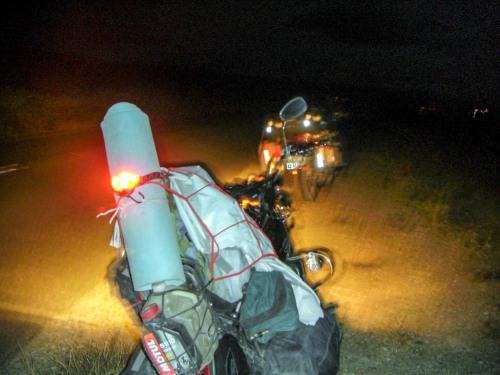
Broken tail light? No problem. Just strap that headlamp to the back!
#3. Always have toilet paper
This is one of the most basic travel rules. If you’re going to be spending long hours on the road with uncertain destinations or conditions you never know where you might have to spend the night. Be it a desert, a forest, or even a bare-bones hostel, a roll of TP can be the difference between a pleasant camp-out and a stressful evening of guessing which leaves aren’t poison ivy.
Pro-tip: A full roll of toilet paper can take up valuable space in your pack. To save some space get rid of the middle cardboard tube. It isn’t suitable for wiping. Your tubeless roll can also double as a neck pillow if you want to lay down for a while.
#4. Know how to treat yourself (for minor issues)
Traveling the open road on a motorcycle is dangerous and being far away from a town most often means that medical assistance won’t be immediate. It’s always good to carry antibiotics and a small first-aid kit, as well as knowing what each item is for. I took one and used it on a few occasions to treat scrapes and cuts. You’ll also want to bring something to treat stomach illnesses like rehydration salts or activated charcoal tablets. The tablets worked wonders when I had a case of the runs and couldn’t stop to find a bathroom every 20 minutes.
In case you can’t treat yourself after an accident it’s important that others know how. I always encourage riders to carry a card or a dog tag with medical information indicating allergies, blood type, and emergency contact info. Some like to paint their blood types on their helmets. I carried a dog tag around my neck at all times but fortunately never had to use it.
#5. Getting lost is encouraged
Destinations aren’t as important as the roads that lead to them. Travel isn’t just about crossing places off your bucket list. Composer Claude Debussy once said that “music is the space between the notes.” Well, adventure is the journey between destinations.
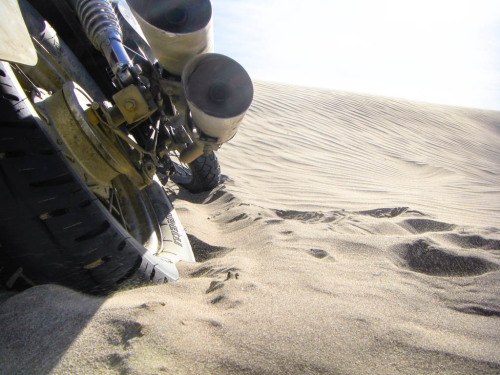
Take the road less traveled.
Traveling without a set plan gives you the freedom to change anything and expose yourself to new experiences. Being willing to stop and explore something unknown to you leads to seeing places and meeting people that you would have never encountered otherwise. Thanks to this mindset I had the fortune of camping in the heart of Tierra del Fuego and Torres del Paine in Chile. This is also what led me to meet some of the kindest people I’ve ever met and learn about their lives.
#6. Speaking to the locals changes your perspective
It is astounding what you can learn from someone simply by sitting down with them and talking for a short while. You get to find out about their experiences, their customs, their unique perspectives. Every person on this planet has similar worries and yearnings. We all experience the same feelings. The differences lie in how we perceive them, how we express them, and how we confront them. Talking to someone not only teaches you about the place you’re visiting but it can also teach you things about yourself. If you find yourself on the wrong side of a language barrier you’ll be surprised how much you can communicate with body language and a big smile.
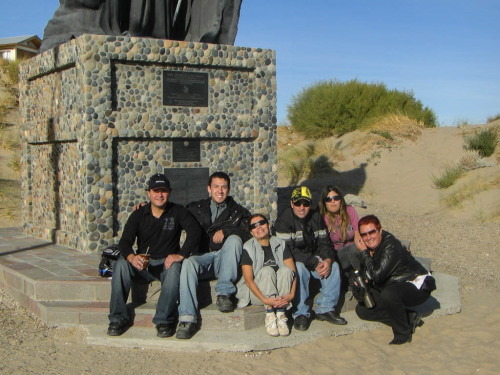
#7. Learn to trust strangers
This one goes against everything our mothers taught us since we were kids, but we’re all grown-ups now, right? There are two theories about human nature. On one side you have those that argue that people are inherently evil while others claim that we’re inherently good. I side with the latter and the experiences I’ve had traveling only confirm that. Nearly everyone I crossed paths with during my travels in South America not only showed interest in my trip, but also a very genuine kindness and willingness to help in times of need. In Chile, two truckers risked their jobs to get me out of the desert when I wrecked my chain drive, and in Brazil I was offered food and shelter when I was stranded for two days.
If you find yourself in some messy situation it might be better to trust a stranger than to suffer in solitude.
Pro-tip: This last bit of advice seems less true in larger cities. There’s something about cities that hardens people and makes them uneasy about their own neighbors. I wouldn’t say that you should distrust everyone in a city but just be more careful.
#8. To risk trying something new is to be alive
When I made the decision to pack my bags and leave on my motorcycle, it was one of the most important decisions I’ve made in my life and I’ll never regret doing it. To throw a wrench in your daily routine and expose yourself to rich experiences feeds your soul. It forces you to leave your comfort zone and face adversity and the unknown, and through this action you become stronger and learn that you are capable of great things. It can be something as simple as trying a new dish or something as big as sailing around the world. Even if your experience is a negative one, you’ll still have learned a lot from it and grown as a person, and you can’t put a price on that.
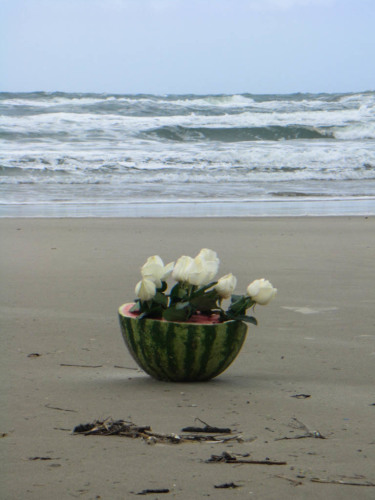
How has travel changed your perspective on things? Let us know in the comments!

